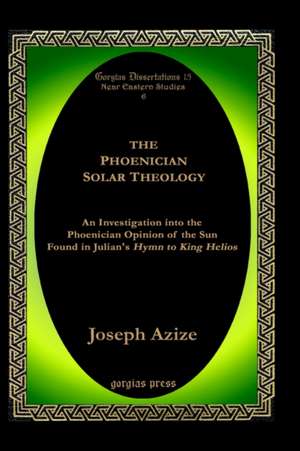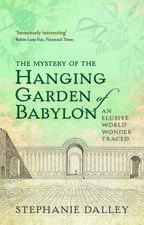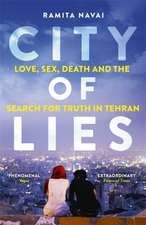The Phoenician Solar Theology: Gorgias Dissertations; Near Eastern Studies
Autor Joseph Azizeen Limba Engleză Hardback – 7 iun 2005
Preț: 947.21 lei
Preț vechi: 1101.40 lei
-14% Nou
Puncte Express: 1421
Preț estimativ în valută:
181.25€ • 189.72$ • 150.86£
181.25€ • 189.72$ • 150.86£
Carte tipărită la comandă
Livrare economică 31 martie-14 aprilie
Preluare comenzi: 021 569.72.76
Specificații
ISBN-13: 9781593332105
ISBN-10: 1593332106
Pagini: 348
Dimensiuni: 152 x 229 x 24 mm
Greutate: 0.68 kg
Editura: Gorgias Press LLC
Seria Gorgias Dissertations; Near Eastern Studies
Locul publicării:United States
ISBN-10: 1593332106
Pagini: 348
Dimensiuni: 152 x 229 x 24 mm
Greutate: 0.68 kg
Editura: Gorgias Press LLC
Seria Gorgias Dissertations; Near Eastern Studies
Locul publicării:United States
Descriere
This is the first examination of the fragments of the solar theology of the Phoenicians. Beginning from the Emperor Julian's fourth-century statement that in the opinion of the Phoenicians 'the sunlight which is sent forth everywhere is the immaculate action of pure mind itself,' this book contends that there existed an authentic and ancient Phoenician solar theology, similar to that described by Julian, reaching back to the sixth or fifth century BCE. Such a theology is described in Damaskios' quotation from Mochos, the Sidonian philosopher. A passage from Philo of Byblos, preserved in John Lydus, and referring to "the noetic light," strengthens this argument. Phoenician funerary inscriptions are examined, together with relevant artistic evidence and some surviving accounts of Phoenician thought. Altogether, a portrait of Phoenician spiritual thought emerges: a native tradition not dependent upon Hellenic thought, but related to other Semitic cultures of the ancient Near East, and, of course, to Egypt. Many themes and motifs from ancient Phoenician religion are discussed, such as the phoenix bird (the "Phoenician" bird) which was associated with the concept of immortality, and the possibility that there was a Phoenician cult of "Yhwh". The book abstracts seven ideas from the extant material as axial concepts. In light of this analysis, it can be seen that Phoenician religion possessed a unique organizing power, in which the sun, the sun god, life, death, and humanity, were linked in a profound system, which seems to have been common amongst the Phoenician city states.














